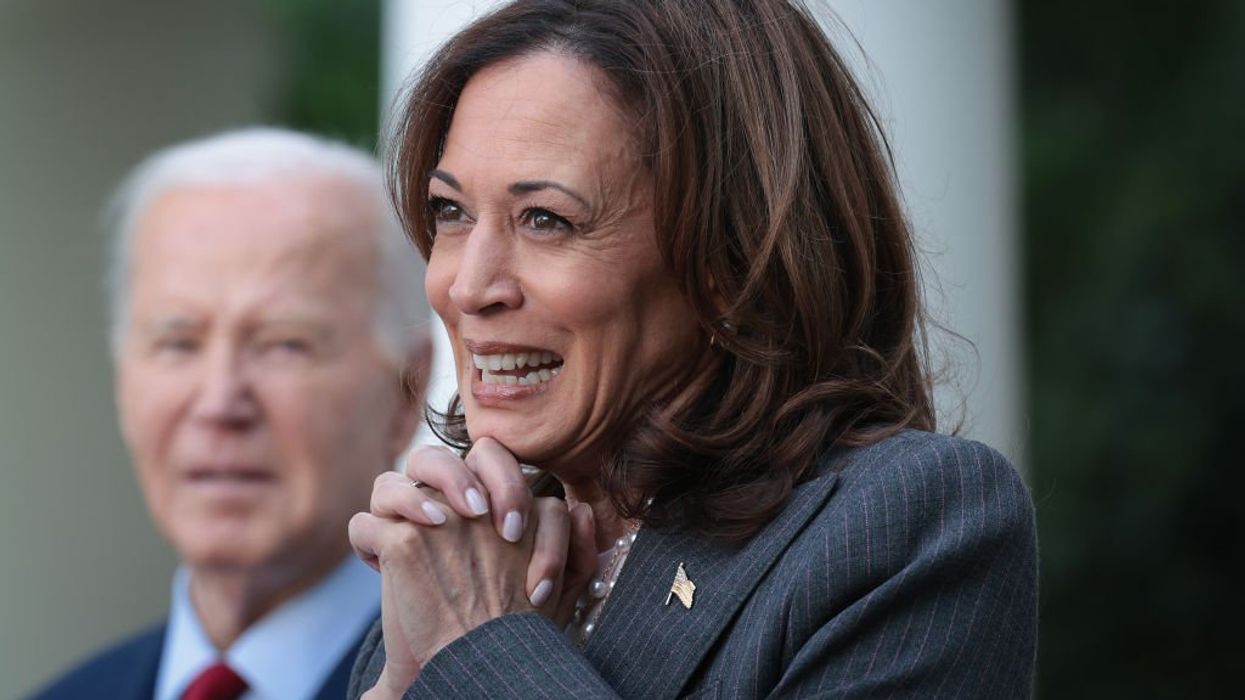
© 2024 Blaze Media LLC. All rights reserved.
Convention Unveils New Regional Face of GOP: No Longer Dominated by South, West
August 28, 2012
“In politics, there’s a name for a regional party: it’s called a minority party"
Stay up-to-date on all the convention news by visiting TheBlaze's dedicated RNC page. Also find out how you can watch exclusive, live reports and analysis on TheBlaze TV. Get both here.
--

When accepting the nomination Thursday night, Mitt Romney will become the first Republican nominee for president in six decades to have represented or governed in the northeastern United States. Along with former President Gerald Ford, Romney will be only the second Republican nominee over that timespan to have governed or represented any northern state. The former Massachusetts governor's nomination will be overseen by Reince Priebus, one of only three of the last twenty Republican National Committee Chairman from the Midwest, a position that has not been held by a Republican from the northeast since 1964.
With a presidential ticket holding Massachusetts, Wisconsin and Michigan roots, a keynote address from a New Jersey governor, and burgeoning national leaders hailing from the likes of Minnesota and Ohio, the GOP has seen a substantial expansion in influence over the last three years, beginning to turn around what had been a nearly half century-trend towards a regional party isolated to the South and Mountain West.
Much has changed in the four years since retiring five-term Republican Northern Virginia Congressman Tom Davis said on election day 2008 that the GOP will have to “retool” because it has become “a white, rural, regional party," boxing itself solely to the South.
That day, the Democratic Party saw a 21-seat gain in the House on the coattails of Barack Obama's White House victory, wiping out the last Republican representatives in New England, and seeing gains in New York, New Jersey, Pennsylvania, Michigan, Ohio, and Illinois. The results were an encore of a 2006 midterm shellacking that had switched 31 seats to Democrat, including new gains in Wisconsin, Indiana, Minnesota, Iowa and Kansas. In 2006 and 2008, Democrats also picked-up 13 seats in the Senate over that time, making gains in Pennsylvania, Ohio, Montana, Missouri, Minnesota, and New Hampshire.
On the presidential level, Republicans have finished behind Democrats in percent of electorate in the Northeast by 21 points in 1996, 17 points in 2000, 12 points in 2004 and 19 points in 2008. After winning the midwest in 2000 and 2004, Barack Obama beat John McCain by 10 points in the region in 2008. As George Will often notes, the GOP has received an average of 64 percent of their electoral votes in the last five presidential elections from the South.
Shortly after Barack Obama took office in January 2009, Senate Republican Leader Mitch McConnell recognized the trend and warned the country's top-ranking Republican Party leaders that the GOP "seems to be slipping into a position of being more of a regional party than a national one."
“In politics, there’s a name for a regional party: it’s called a minority party. And I didn’t sign up to be a member of a regional party," Sen. McConnell told top Republican National Committee members in Washington D.C. on the day before they selected a new chairman to lead them in 2009 and 2010.
At the time Sen. McConnell argued that a better job of communicating the party’s principles, not changing them, was the answer to stop this trend.

Benefiting from a combination of public discontent towards the Obama administration's policy proposals on Cap-and-Trade and Health Reform rather than jobs and government spending in their first two years, effective use of campaign resources, and a Tea Party-influenced grassroots and national party focus on concerns regarding the economy and scope of government, the Republican Party has seen major electoral gains since 2008 that have expanded the regional influence of the party.
Beginning in 2009, the GOP saw gubernatorial election wins by Bob McDonnell in Virginia and Chris Christie in New Jersey, each following two consecutive Democrat administrations in their state. The changing tide became undeniable following the January 2010 U.S. Senate special election in Massachusetts following the death of Ted Kennedy, where State Senator Scott Brown became the first Republican U.S. Senator from Massachusetts since 1972.
In the 2010 midterm elections, Republicans in the Senate gained six seats, and 63 in the House, the largest swing since 1938. Of the six Senate seats gained by Republicans, five were formerly held by Democrats in the Northeast or Midwest. In 2010, 40 Freshman GOP House Members came from the Northeast and Midwest, 33 of which secured gains for the party in an election that swung House control back to Republicans.
Some credit for these significant gains in U.S. House and Senate elections outside of the GOP's regional comfort zone can be attributed to increased attention given by the National Republican Senatorial Committee (NRSC) and National Republican Congressional Committee (NRCC) in these Northeast and Midwest races. In the 2008 cycle, 44 percent of NRCC and 21 percent of NRSC contributions went to recipients in the Northeast and Midwest. In the 2010 cycle, NRCC spending on Northeast and Midwest candidates went up to 50 percent, and NRSC to 34 percent.
In addition to changes on Capitol Hill, 12 Northeast and Midwest statehouses began 2011 with Republicans in control, in addition to Iowa and New York divided. In 2010 Northeast and Midwest gubernatorial elections, seven states turned Republican.
Going into this week's Republican National Convention, the regional growth of the party is evident. Fifteen speakers at the RNC are candidates, current or former legislators governing or representing Northeast or Midwest states. Up from ten in 2008. The choice of New Jersey Governor Chris Christie to deliver the keynote address Tuesday night, who was far off from the national political radar at the time of the last convention, exemplifies the emergence of new GOP stars outside the party's regional base. Christie will be followed in closing remarks Wednesday night by presumptive Vice Presidential Nominee Paul Ryan of Wisconsin, and Thursday night by Republican Nominee for President Mitt Romney of Massachusetts.
Observers to remarks through the convention will listen closely to how Republican speakers address and attempt to strengthen this recent regional growth, for with similar inroads made by Democrats in the Mid-Atlantic and Southwest, sustaining these gains may be essential for any possible win against President Obama this November and in elections to come. Of the sixteen Northeast and Midwest states that sent their electoral votes to Obama in 2008, pollsters speculate that five (Ohio, Iowa, Wisconsin, New Hampshire, and Indiana) are now toss ups or leaning red, totaling 49 electoral votes.
Those states combined with another large swing state, like Florida, by several assessments would put Mitt Romney over the 270 electoral votes needed to win.
Want to leave a tip?
We answer to you. Help keep our content free of advertisers and big tech censorship by leaving a tip today.
Want to join the conversation?
Already a subscriber?
more stories
Sign up for the Blaze newsletter
By signing up, you agree to our Privacy Policy and Terms of Use, and agree to receive content that may sometimes include advertisements. You may opt out at any time.
© 2024 Blaze Media LLC. All rights reserved.
Get the stories that matter most delivered directly to your inbox.
By signing up, you agree to our Privacy Policy and Terms of Use, and agree to receive content that may sometimes include advertisements. You may opt out at any time.


